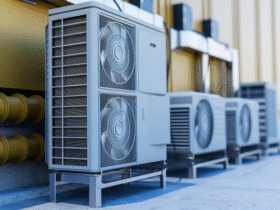A burst pipe can quickly turn into a homeowner’s nightmare, flooding your space and causing significant damage. I’ve had my fair share of dealing with water damage, and believe me, it’s not something you want to experience if you can help it. Understanding what causes a pipe to burst and how to prevent it can save you from a lot of stress and costly repairs.
Common Causes of a Burst Pipe
There’s no single reason why a pipe bursts; it can happen for various reasons, often without warning. Here are some of the most common causes:
- Freezing Temperatures
One of the most frequent causes of burst pipes is freezing temperatures. When water inside a pipe freezes, it expands. This increase in volume can create immense pressure, causing the pipe to crack or burst. I once visited a friend whose pipes froze during an unexpected cold snap, and the resulting leak flooded their kitchen overnight.
- High Water Pressure
Excessive water pressure can strain your plumbing system. Most residential plumbing systems are designed to handle water pressure between 40 and 60 PSI. If the pressure goes beyond this, pipes can weaken and eventually burst. Installing a pressure regulator can help monitor and control water pressure levels.
- Corrosion and Rust
Older pipes, especially those made from galvanised steel or iron, are prone to rust and corrosion. Over time, this weakens the pipe’s walls, making them more susceptible to breaking. If you notice discoloured water or frequent leaks, it may be time to replace old piping.
- Clogs and Blockages
A clog might not seem like a big deal, but when a blockage builds up pressure behind it, it can force the pipe to burst. Grease, hair, and debris can accumulate in drains and pipes, creating stubborn blockages in drains. I once ignored a slow-draining sink, only to find that the pipe had cracked due to the pressure from a hidden clog.
- Poor Installation and Workmanship
Sometimes, the problem isn’t with the pipe itself but how it was installed. Poor-quality work, including loose fittings or improper sealing, can lead to bursts, especially when the system is under stress. Building and planning guide by the council should be followed by plumbers and builders.
- Tree Root Invasion
Tree roots naturally seek out water sources, and your underground pipes can be prime targets. Roots can infiltrate small cracks, causing blockages or even breaking the pipe entirely. A neighbour of mine had to deal with a burst water main because of invasive tree roots—it was an expensive and messy fix.
Signs Your Pipe May Be About to Burst
Being aware of the warning signs can help you act before the worst happens. Look out for:
- Unexplained puddles or damp spots
- Reduced water pressure
- Unusual noises in your pipes, like banging or whistling
- Water discoloration or an unusual smell
- Spike in your water bill
Preventing a Burst Pipe
Preventive measures can go a long way in protecting your plumbing. Here’s what you can do:
- Insulate Your Pipes
Wrapping pipes with insulation is especially crucial if they are exposed to cold air. You can buy foam pipe insulation from hardware stores and easily fit it yourself. During winter, consider leaving cabinet doors open to allow warm air to circulate around plumbing.
- Maintain Safe Water Pressure
Regularly check your water pressure and ensure it’s within a safe range. If needed, install a pressure regulator to keep it balanced. If you’re unsure how to check it, a plumber can do it for you.
- Regular Plumbing Maintenance
Don’t wait for a problem to arise. Schedule routine checks with a professional plumber to catch signs of wear and tear before they become serious issues.
- Monitor for Clogs
Use drain screens to catch hair and debris, and avoid pouring grease down the sink. If a drain is slow, don’t ignore it—use a plunger or a plumber’s snake to clear the blockage.
- Keep an Eye on Tree Roots
If you have large trees near your home, consider having your pipes inspected regularly. Professional root removal or using root barriers can help protect your plumbing.
- Know How to Shut Off Your Water
In an emergency, shutting off the main water supply can minimize damage. Make sure everyone in your household knows where the shut-off valve is located and how to use it.
Understanding what causes burst pipes and how to prevent them can save you from unexpected stress and repair costs. Take these preventive measures seriously, and if you’re ever in doubt, don’t hesitate to call a professional for advice or repairs. Catching a small problem early can save you from dealing with a major disaster later on.









Leave a Review